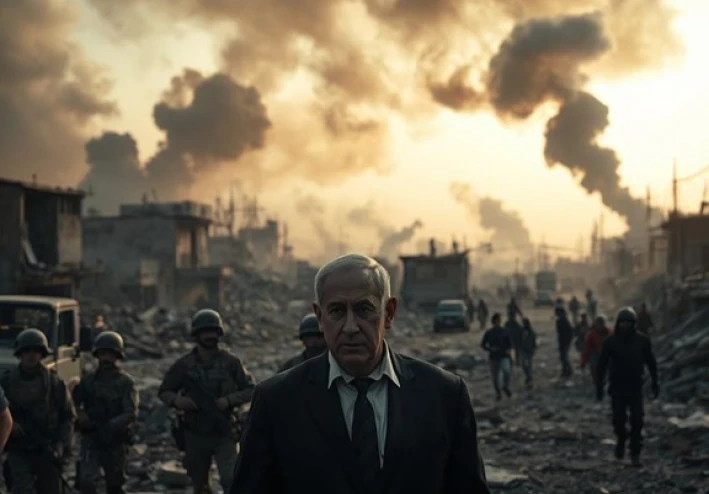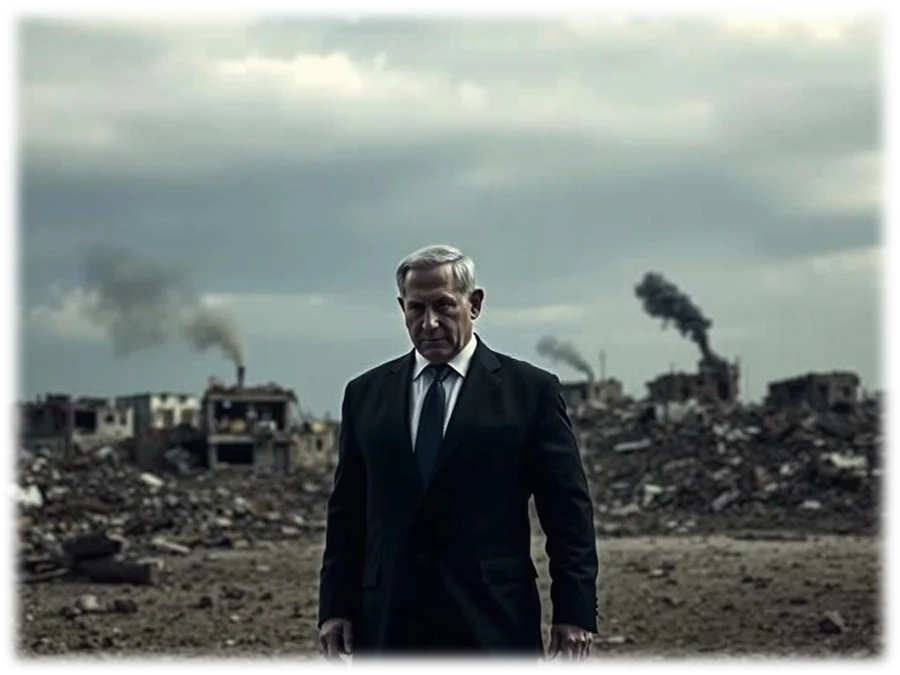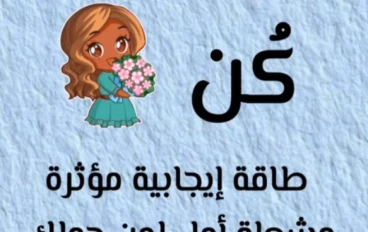
Netanyahu and the Gaza War: Political Survival or Humanitarian Collapse?
Netanyahu and the Gaza War: Political Survival or Humanitarian Collapse?
The ongoing conflict between Israel and Gaza has ignited a global debate with Israeli Prime Minister Netanyahu at its core.
This situation has brought to light the complexities of political survival versus humanitarian collapse.
The Gaza crisis has highlighted pressing concerns about humanitarian developments and regional reactions.
It poses a significant challenge to Netanyahu's political survival.

As the situation evolves it is crucial to dissect the intricacies of the Gaza-Israel conflict and its far-reaching implications.
This examination will shed light on the political and humanitarian dimensions of the crisis.
The Unfolding Tragedy in Gaza
The ongoing conflict between Israel and Hamas has precipitated a catastrophic humanitarian crisis in Gaza.
This crisis, under Netanyahu's governance, has severe consequences.
Civilians are disproportionately affected by the violence.
Death Toll and Displacement Statistics
The conflict has resulted in a substantial loss of life and displacement.
Recent statistics indicate a significant rise in the death toll with thousands injured.
The United Nations reports an alarming increase in internally displaced persons (IDPs) straining local resources.
Critical Infrastructure Destruction
The destruction of critical infrastructure has worsened the humanitarian crisis.
Essential facilities for the civilian population's survival have been severely damaged or destroyed.
Hospitals and Medical Facilities
Hospitals and medical facilities in Gaza have been significantly impacted.
Reports indicate damage to these critical infrastructure points.
This has led to a shortage of medical supplies and personnel complicating the humanitarian situation further.
The water and sanitation systems in Gaza have also been affected. This has raised concerns about disease spread.
The lack of access to clean water and proper sanitation facilities poses a significant risk to public health.
The ongoing Gaza conflict with Netanyahu has led to a dire situation.
The international community is calling for restraint and a peaceful resolution.
The Netanyahu Hamas clash has resulted in significant human suffering.
The control of the Gaza Strip remains a contentious issue.
Netanyahu's Political Survival Calculus
Netanyahu's leadership during the Gaza war has significant implications for his political longevity.
As the conflict continues, his ability to maintain power is being tested.
Pre-War Corruption Trials and Protests
Before the Gaza war, Netanyahu faced significant political challenges including corruption trials and widespread protests against his leadership.
These trials, which involved charges of bribery and breach of trust had the potential to destabilize his government.
The protests, led by various groups, called for his resignation, further weakening his political standing.
Coalition Fragility Before October 7
Netanyahu's coalition government was fragile even before the war began on October 7.
The coalition was held together by a delicate balance of power among its members, with some partners holding extreme views.
This fragility made it difficult for Netanyahu to maintain a unified front as coalition partners often had conflicting agendas.
War as a Political Shield
The onset of the Gaza war provided Netanyahu with a potential political shield against his legal troubles and coalition fragility.
The war effort allowed him to rally public support and temporarily divert attention from his corruption trials.
Yet the long-term effectiveness of this strategy remains uncertain, given the recent ICC arrest warrant against him.
The implications of the ICC warrant against Netanyahu are significant potentially affecting his political survival.
As the situation unfolds, the interplay between the war his legal challenges and his political maneuvering will continue to shape his future.
The ICC Arrest Warrant Against Netanyahu: Legal Foundations
The prospect of an ICC arrest warrant for Netanyahu has ignited intense debate on the application of international law in the Gaza conflict.
The ICC's probe into alleged war crimes during the conflict holds profound implications for Netanyahu's political trajectory.
Specific Charges and Evidence
The ICC scrutinizes several charges against Netanyahu, encompassing war crimes and crimes against humanity.
The evidence under review encompasses reports of civilian casualties infrastructure destruction and the siege's detrimental effects on Gaza's civilian populace.
- Allegations of disproportionate military response
- Evidence of civilian casualties and infrastructure destruction
- Claims of collective punishment through siege warfare
International Law on Siege Warfare
Siege warfare is governed by international humanitarian law which prohibits actions causing unnecessary suffering or harm to civilians.
The ICC's evaluation of Netanyahu's actions in this context is pivotal.
It may establish a precedent for legal assessments of future conflicts.
"The use of siege warfare as a tactic must be carefully scrutinized to ensure it does not violate international humanitarian law"
said a legal expert familiar with the ICC's investigation.
Netanyahu's Personal Legal Exposure
Netanyahu's personal legal exposure is a critical aspect of the ICC's investigation.
If charged Netanyahu could face substantial legal and diplomatic hurdles including potential travel restrictions and diplomatic isolation.
Potential Travel Restrictions
An ICC arrest warrant would likely impose significant travel restrictions on Netanyahu.
ICC member states would be compelled to arrest him upon entry.
Diplomatic Implications
The diplomatic repercussions of an ICC arrest warrant against Netanyahu could be extensive.
It could strain Israel's relations with ICC member states and impact the broader Middle East peace process.
Netanyahu and the Gaza War: Strategic Objectives vs. Humanitarian Realities
Netanyahu's leadership during the Gaza conflict is under intense scrutiny.
His strategic decisions are being evaluated for their humanitarian implications.
The war has brought to the forefront the challenge of balancing military objectives with the need to address the humanitarian crisis.

Evolution of War Aims
The initial goals of the war were to dismantle Hamas's military capabilities.
Yet as the conflict escalated objectives evolved to include the elimination of Hamas's governance in Gaza.
This shift has profound implications for the region's stability.
The Hostage Dilemma
The hostage dilemma is a critical aspect of the conflict.
Netanyahu's government is under immense pressure to secure the release of Israeli hostages held by Hamas.
The negotiations are fraught with competing demands and concerns about escalating the situation further.
Civilian Casualties as "Collateral Damage"
The conflict has led to significant civilian casualties, often termed "collateral damage."
The international community has expressed concerns over the disproportionate impact on non-combatants.
The use of this term has been criticized for minimizing the humanitarian consequences.
The ongoing "Netanyahu gaze war" has ignited a global debate on the "gaza-israel conflict"
and Netanyahu's role in the “Netanyahu Hamas clash” As the situation continues to evolve
understanding the strategic objectives versus the humanitarian realities is paramount.
- The conflict's impact on civilian infrastructure
- The role of international law in conflict resolution
- The future governance of Gaza
The "Netanyahu gaze war" exemplifies the complexities of modern conflict.
Here, military strategy and humanitarian concerns are inextricably linked.
Gaza's Humanitarian Collapse: A System-Wide Failure
The ongoing Gaza conflict spearheaded by Prime Minister Netanyahu has precipitated a humanitarian catastrophe.
The situation in Gaza has dramatically worsened with profound implications for its civilian populace.
Food Insecurity and Starvation Risk
The conflict has severely impacted Gaza's food security with widespread reports of starvation and malnutrition.
The blockade and restrictions on aid have exacerbated the situation, leaving many without access to basic necessities.
- Restrictions on food imports have limited availability.
- Cash assistance programs have been disrupted.
- Malnutrition rates among children are alarmingly high.
Medical System Breakdown
Gaza's medical infrastructure has been severely strained due to the conflict.
Hospitals are facing shortages of medical supplies and many have been damaged or destroyed.
Key challenges include:
- Lack of essential medicines and equipment.
- Inadequate staffing due to injuries or displacement.
- Overcrowding in remaining functional hospitals.
Psychological Trauma Among Civilians
The psychological impact of the conflict on Gaza's civilian population, notably children
is profound. The trauma caused by violence, displacement, and loss is long-lasting.
Children's Mental Health Crisis
Children in Gaza are experiencing extreme psychological distress manifesting in anxiety depression, and PTSD.
The lack of mental health services exacerbates this crisis.
The situation is dire and requires immediate attention.
Long-term Population Impacts
The humanitarian crisis in Gaza will have long-term effects on its population including increased mortality rates psychological trauma and a generation affected by the conflict.
The situation in Gaza under Prime Minister Netanyahu's leadership highlights the urgent need for a resolution to the conflict to prevent further humanitarian deterioration.
Netanyahu's Far-Right Coalition Partners: Driving the War Forward
Netanyahu's government strengthened by far-right coalition partners intensifies the Gaza war.
This alliance significantly influences Israel's Gaza strategy, advocating for more aggressive actions against Hamas.
Ben-Gvir and Ostrich’s Extremist Agenda
Ben-Gvir and Shortish prominent figures, openly express their extremist views.
They advocate for expanding settlements and a rigid stance against Palestinian territories.
Their impact is profound, propelling the war's progression.
Settlement Expansion During Wartime
Amidst the conflict settlement activities surge with far-right partners pushing for Israeli settlements' expansion into Palestinian lands.
This stance garners global condemnation, hindering ceasefire talks.
Threats to Collapse Government Over Ceasefire
Netanyahu's far-right allies threaten to dismantle the government if a ceasefire is pursued.
This internal strain hampers Netanyahu's capacity to secure a peaceful conflict resolution.
The intricate political dynamics within Netanyahu's coalition underscore the complex environment shaping the Gaza war.
The aggressive stance of far-right partners complicates ceasefire negotiations making a peaceful resolution elusive.
U.S.-Israel Relations: Cracks in the Alliance
The Biden administration has voiced private discontent with Israel's actions in Gaza revealing
the intricate dynamics of the U.S.-Israel relationship amidst the ongoing conflict.
Biden's Public Support vs. Private Frustration
The Biden administration navigates a delicate balance publicly backing Israel while privately voicing reservations about its Gaza war tactics.
President Biden has reiterated the U.S. pledge to Israel's security.
Yet there are whispers of private disagreements regarding the conflict's humanitarian toll and military strategies.
Military Aid Restrictions and Conditions
The U.S. has introduced restrictions on military aid to Israel, driven by concerns over the use of U.S.-supplied arms in Gaza.
This development marks a nuanced shift in U.S. policy aiming to reconcile its historical support for Israel with the escalating humanitarian concerns.
American Public Opinion Shifts
American public sentiment is increasingly critical of Israel's actions in Gaza with
"a growing number of Americans calling for a ceasefire and expressing concern over civilian casualti"
(Source)
- Growing pro-Palestinian sentiment among certain segments of the population
- Increasing scrutiny of U.S. military aid to Israel
Growing Pro-Palestinian Sentiment
The humanitarian crisis in Gaza has intensified pro-Palestinian sentiment in
the U.S. prompting calls for a more equitable approach to the conflict.
Election Year Calculations
As the U.S. presidential election draws near the Biden administration's management of the Gaza conflict is under intense scrutiny.
This has significant implications for both domestic and foreign policy considerations.
Netanyahu's Narrative Control: Media Strategy and Censorship
Netanyahu's government has implemented a complex media strategy to manage the narrative of the Gaza conflict.
This strategy is vital in shaping public opinion both within Israel and globally.
Domestic Information Management
The Israeli government has exerted significant control over domestic media, shaping the information available to the public. This includes restricting access to conflict zones and regulating the dissemination of sensitive information. Netanyahu's administration seeks to bolster domestic support for the Gaza war through this control.
International PR Campaigns
Netanyahu's government has also initiated international PR campaigns to influence global public opinion.
These campaigns aim to counter negative views of Israel's actions in Gaza and secure support from key international allies.
Suppression of Critical Voices

A key component of Netanyahu's narrative control is the suppression of critical voices both within Israel and internationally.
This includes silencing critics of the government's actions in Gaza.
Such actions could impact the ICC warrant against Netanyahu by limiting international legal bodies' access to information.
Through narrative control Netanyahu's government aims to shape not only public opinion but also the broader political and legal discourse surrounding the Gaza conflict.
Hamas after twenty months of war: Weakened but Resilient
Eight months into the war Hamas's resilience is a critical factor in the Gaza conflict dynamics.
Despite facing significant challenges, Hamas continues to be a formidable force in the region.
Military Capability Assessment
Hamas's military capabilities have been severely tested during the ongoing conflict with Israel under Netanyahu's leadership.
While their infrastructure has been damaged they have managed to maintain some level of operational capability.
The group's ability to launch rockets and engage in guerrilla warfare remains a concern for Israeli forces.
Leadership Structure Changes
The conflict has led to significant changes in Hamas's leadership structure.
Several high-ranking leaders have been targeted and killed leading to a shift in the organization's command dynamics.
This has potentially created both challenges and opportunities for Hamas as it navigates the ongoing conflict.
Popular Support Among Palestinians
Despite the challenges posed by the conflict Hamas continues to enjoy significant support among certain segments of the Palestinian population.
The group's resistance narrative resonates with many Palestinians who view Hamas as a key player in the struggle against Israeli occupation.
As one Palestinian analyst noted,
"Hamas's ability to survive and adapt has been crucial in maintaining its support base"
The ongoing "Netanyahu Hamas clash" has highlighted the complexities of the Gaza conflict with both sides suffering significant losses.
As the situation continues to evolve understanding Hamas's current state is crucial for assessing the future dynamics of the "gaze conflict with Netanyahu."
Netanyahu's Military Control of Gaza: Tactics and Humanitarian Consequences
Netanyahu's military control over Gaza has sparked intense humanitarian concerns.
The Israeli military's tactics in Gaza have been subject to intense scrutiny.
Debates surround their effectiveness and humanitarian impact.
Urban Warfare Strategies
The Israeli military has employed urban warfare strategies in Gaza leading to significant damage to infrastructure and civilian casualties.
Tactics such as house demolitions and street fighting have been criticized for their potential to harm non-combatants.
Aid Restriction Policies
Netanyahu's government has faced criticism for its aid restriction policies in Gaza exacerbating the humanitarian crisis.
Limiting the flow of essential supplies has devastated the civilian population.
Evacuation Orders and Safe Zones
The Israeli military has issued evacuation orders and designated safe zones in Gaza.
The effectiveness and compliance with these orders have been questioned.
Concerns have been raised about the feasibility of evacuating quickly in a densely populated area.
Effectiveness and Compliance
The effectiveness of evacuation orders depends on various factors including the availability of safe routes and the ability of civilians to comply.
Compliance is often hindered by the dire humanitarian situation.
International Law Violations
The military actions in Gaza have raised concerns about potential violations of international law including the laws of war and human rights law.
Investigations into alleged war crimes have been called for by various international bodies.
The humanitarian consequences of Netanyahu's military control in Gaza are far-reaching
with significant implications for the civilian population and the broader region.
Regional Destabilization: The Widening Conflict
The ongoing conflict between Israel and Hamas has catalyzed broader regional instability.
The Gaza war's repercussions are felt across the Middle East impacting various countries and communities.
This escalation has significant implications for regional dynamics.
Lebanon Border Exchanges
The conflict has extended into Lebanon, with exchanges of fire between Israeli forces and Hezbollah militants along the border.
This development has heightened concerns about the potential for a wider conflict.
It could draw in other regional actors, further destabilizing the area.
Iran's Proxy Network Activation
Iran, a key supporter of Hamas and Hezbollah, has been activating its proxy networks across the region.
This includes increased military activities by groups in Iraq Syria, and Yemen.
Such actions complicate the security landscape, adding to the conflict's complexity.
Red Sea Shipping Disruptions
The conflict has also impacted global shipping, with disruptions in the Red Sea.
The Houthis in Yemen backed by Iran have been targeting commercial vessels.
This affects international trade and economies, leading to increased costs and potential shortages of goods.
Economic Impacts
The Red Sea shipping disruptions have significant economic implications.
They include increased costs for shipping and potential shortages of goods.
This has a ripple effect on global markets and economies causing widespread disruption.
Military Responses
In response to these developments various countries are adjusting their military postures.
The U.S. and other allies have been bolstering their military presence in the region.
This is to protect shipping lanes and deter further escalation.
As the situation continues to unfold the international community remains on high alert.
They are working to mitigate the humanitarian crisis and prevent further destabilization of the region.
This collective effort aims to stabilize the area and protect global interests.
Israeli Society Divided: War Support vs. Peace Advocacy
The ongoing conflict in Gaza has revealed profound divisions within Israeli society.
Different views on the war's goals and outcomes are prevalent.
Various segments of Israeli society are expressing their opinions shaping the national dialogue.
Hostage Families' Growing Influence
Families of hostages held by Hamas are increasingly vocal.
They advocate for a negotiated release, highlighting their personal tragedies.
Their efforts have garnered significant public sympathy and media attention making them a significant force in shaping public opinion.
Anti-War Protests and Government Crackdowns
Anti-war protests have erupted across Israel.
Demonstrators demand an immediate ceasefire and criticize Netanyahu's conflict management.
The government has responded with a mix of measures including crackdowns on certain protests and efforts to maintain public support for the war effort.
Military Reservists' Perspectives
Military reservists, directly involved in the conflict, offer a unique perspective. Some have voiced opposition to the war
citing concerns over military tactics and the humanitarian situation in Gaza.
Others continue to support the operation highlighting the complexities of Israel's security dilemma.
Post-War Gaza Planning: Competing Visions
The ongoing conflict in Gaza has led to diverse perspectives on the region's future.
As the war rages on, the need for post-war planning has become paramount.
World leaders and regional actors are deeply invested in this endeavor.
Netanyahu's Indefinite Control Strategy
Israeli Prime Minister Netanyahu has outlined his intention to retain Israel's control over Gaza post-war.
His strategy involves maintaining a military presence and potentially expanding Israeli settlements within the area.
Arab States' Reconstruction Proposals
Arab states have proposed significant reconstruction efforts for Gaza post-war.
These initiatives include substantial investments in infrastructure and housing.
They also aim to revitalize the local economy.
Palestinian Governance Questions
The question of who will govern Gaza post-war remains contentious.
Two primary scenarios are under consideration: the return of the Palestinian Authority and international administration.
PA Return Scenarios
The return of the Palestinian Authority to Gaza is a possible outcome.
Yet this would necessitate substantial reforms within the PA.
These reforms must address corruption and inefficiency.
International Administration Possibilities
An alternative is the establishment of an international administration to oversee Gaza's reconstruction and governance.
This would involve a coalition of international organizations and countries.
Together they aim to stabilize the region.
In conclusion, the future of Gaza post-war is shrouded in uncertainty.
Various competing visions are being proposed by different stakeholders.
The outcome will be shaped by a complex interplay of political, military and diplomatic factors.
Beyond the ICC: Other Accountability Mechanisms
The quest for accountability in the Gaza conflict extends beyond the ICC.
Various legal and diplomatic paths are being explored.
These efforts aim to ensure that those responsible for alleged war crimes face justice.
UN Investigations and Reports
The United Nations plays a pivotal role in probing alleged human rights abuses and war crimes.
Through its reports the UN sheds light on the conflict's complexities.
These investigations are essential for accountability prompting international action.
Universal Jurisdiction Cases
Universal jurisdiction empowers national courts to prosecute serious crimes committed abroad.
This principle is being applied globally to tackle alleged war crimes in the Gaza conflict.
It underscores the commitment to justice transcending national borders.
Economic and Diplomatic Sanctions Potential
Economic and diplomatic sanctions are under consideration as a means to enforce international law compliance.
These measures can significantly affect a party's political and economic stability.
They might influence their actions within the conflict.
The integration of ICC warrants UN investigations, universal jurisdiction cases and economic sanctions forms a robust strategy.
This multi-faceted approach ensures accountability for the Gaza conflict.
It leverages diverse legal and diplomatic avenues, aiming to prevent future violations.
Conclusion: At the Crossroads of Political Survival and Moral Reckoning
The ongoing Gaza war has placed Israeli Prime Minister Netanyahu at a critical juncture.
His political survival is intricately linked with the unfolding humanitarian crisis.
The conflict marked by significant human suffering and infrastructure destruction
raises pressing questions about the Gaza-Israel conflict and its far-reaching implications.
As the Netanyahu Hamas clash continues concerns about the Israeli Prime Minister's Gaza crisis management have grown.
The international community is increasingly scrutinizing the humanitarian situation in Gaza, with calls for accountability and restraint.
The Netanyahu gaze war has not only strained Israel's relations with its neighbors but also sparked internal divisions within Israeli society.
The path forward requires a nuanced understanding of the complex dynamics at play.
It is essential to balance the need for political stability with the imperative of addressing the humanitarian crisis.
As the situation continues to evolve the international community must remain engaged, promoting a peaceful resolution to the gaza israel conflict.



































